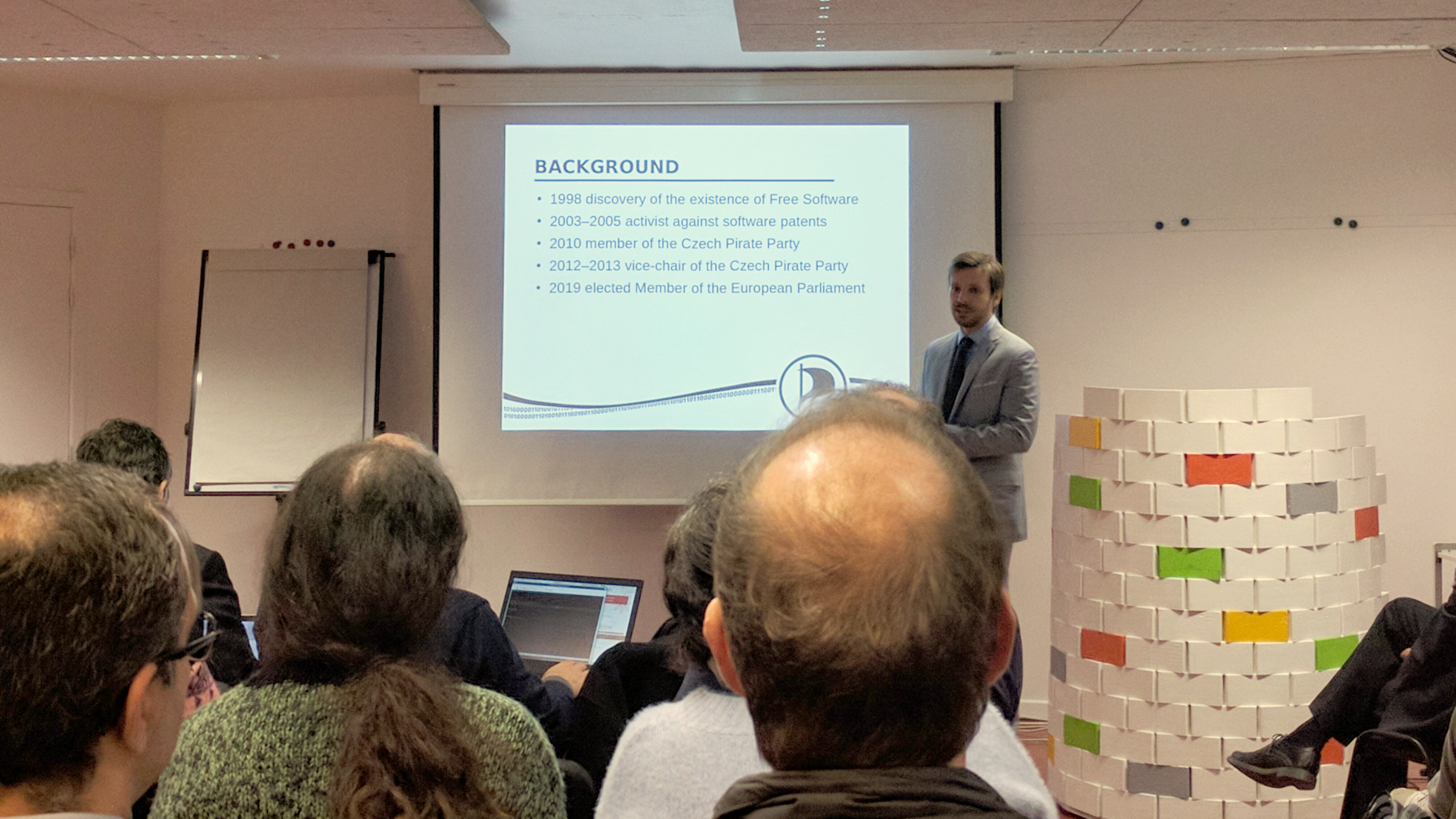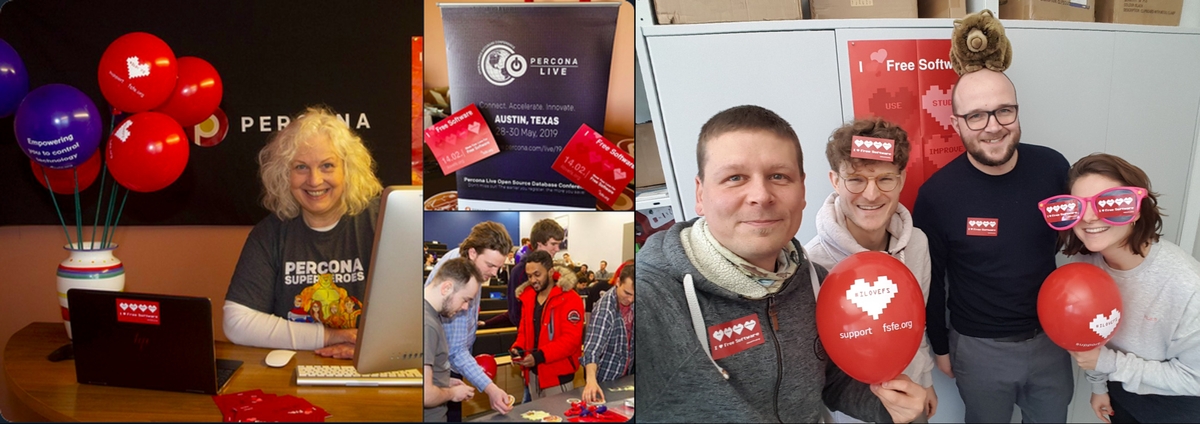Fear, Uncertainty, and Doubt - the Barriers to Router Freedom in Germany
Consider this hypothetical scenario: you moved
house. Apart from all the stress of packing, transporting, and
unpacking all your stuff at your new home, you also had to deal with
getting utilities connected. The electric company turned out to be
difficult to deal with: they said you had to change your TV set,
toaster, refrigerator and most of your lamps.
They said that they couldn't guarantee you would have electricity at
all unless you bought a whole new set of appliances from them. You
don't understand: your stuff worked perfectly fine in your old
place.
The water company was not much better. They told you that your old
washing machine was "not supported" and that you would even have to
change your toothbrush or you risked polluting the water network of the
whole city for some unexplained reason. We are guessing you would no
doubt find this scenario very hard to believe. We do not blame you: it
is silly beyond the believable.
But now consider this very real situation:
Max and Lucas moved house
Not together, but yet more or less simultaneously. We (my colleague
Lucas and me, Max) moved to new flats in our respective cities in
Germany and decided we wanted to connect to the Internet through our
own routers. Since August 2016, this has been allowed thanks to a new law which the FSFE has
advocated for since 2013. According to the law, Internet Service
Providers (ISPs) can offer their own technical equipment, but they must
not force it upon you. In order to allow for free choice of modems and
routers, ISPs have to provide the necessary information for the
installation and usage of communication equipment and services without
the client having to ask for it and for no charge.
But we soon realised that our ISPs, Unitymedia and Vodafone, were
not willing go through this process. This is a story of soft and hard
barriers, and how to overcome them individually and as a community. It
is important not to ignore the hurdles ISPs put in our way. Router Freedom offers too many
advantages, including those of independence, security, privacy and
control of our technology, to be ignored.

Some of the various benefits of Router Freedom
Soft barriers
In November 2019, Lucas experienced a so-called soft barrier
courtesy of Vodafone, his ISP. When he moved to a new flat, he
requested a DSL connection. After waiting for a entire month for the
connection, the ISP's customer service tried to convince Lucas not to
use his own router, stating several times that a private router is more
expensive, hard to install, not secure and could cause damage to the
public network. Besides, something even more concerning was that they
threatened Lucas by saying that in case he insisted having a private
router, they would not be able to provide technical support. All that
said, at least they provided with no delay the necessary login
information.
This behavior is called a "soft barrier" because, although Vodafone
did not prevent Lucas by contractual means to use his private router or
denied vital information for the router configuration (login data),
Vodaphone's customer service subtly tried to convince Lucas to not use
his own router with the customary economic and commercial arguments
that ISPs usually push onto their customers. In most of the cases, it
is sufficient to scare people away from Router Freedom.
Hard barriers
In December of the same year, I moved to a new city and chose a
business cable Internet connection offered Unitymedia (meanwhile
largely incorporated by Vodafone). After several calls, a technician
finally visited my new home and successfully installed the ISP's
default modem. Of course, I immediately noted that I wanted to use my
own router. The technician told me that this was not allowed.
In a call with the service hotline, after defending some of the
already mentioned soft barriers, I learnt that one of the features I
had ordered, a static IPv4 address, is not
available when using an own router, apparently because the
address could only be mapped to their devices – even though my own
router was the exact same model.
Although I am now able to use my own router (after a long series of
hotline calls and waiting), I still cannot use an essential feature I
ordered. This is a "hard barrier" because customers who want to
exercise their freedom of choice are treated worse. At least I can
enjoy the freedom of using equipment which I own and which I can
control, but I will report this misconduct by my ISP to the national
Federal Network Agency and a consumer protection organisation (see
below).

Picture by Konrad Twardowski, licensed under CC-BY-SA-2.0
How to deal with barriers?
Everyone should be able to choose their own modem or router. We call this Router Freedom and Internet Service Providers (ISPs) must not restrict it. In Europe, and specifically in Germany, this freedom is assured by several directives and laws. It is ironic that we, the two coordinators of the FSFE's Router Freedom campaign, experienced first hand how German ISPs are still reluctant to allow people use their own devices.
In case you are in Europe and your ISP is trying to convince you to use their router, here is a small guide of how to proceed:
If they tell you that you are not allowed to use your router,
you can report the fact to the
National
Regulatory Agency or the
Consumer
Protection Authority of your region. There may also be
state-independent organisations and platforms to report issues, e.g.
Marktwächter
in Germany. Please share your experience in the
FSFE's
forum to help us and others.
If you can use your router, but the ISP refuses to provide the
login data for the public network, this is also a case for the
National Regulatory Agency or Consumer Protection Authority. Please
follow the same procedure explained above.
If you are allowed to use your router, but the ISP refuses to
provide technical support, you must know that every ISP is obliged by
contract to provide technical support in relation to your access to
the Internet. Although they can refuse to support your private
router, all other issues concerning the connection must be handled by
them; and, according to our experience, most issues with routers can
be solved with a quick search on the Internet.
How many people are affected by Router Freedom barriers?
Germany was one of the first European countries to implement a
Router Freedom law, following the efforts of the FSFE's campaign
for Router Freedom. The number of people using their own routers
has been growing at a slow but steady pace. According to latest
reports, Vodafone, the second largest ISP in Germany, has 3,5% of
their cable customers using their own routers. For Unitymedia, a large
cable ISP bought by Vodafone, the number is 2%.

Router Freedom and Vodafone Germany
Complaints about violations against art. 3(1) of the Net
Neutrality Regulation, which also protects Router Freedom, are growing
faster. The German National Regulatory Agency, the authority
responsible for the monitoring of the net neutrality rules in the
country, has registered this to be an "increasingly important isue" for
the report
period of 2018-2019 (p. 11), although they consider their options
to intervene in such cases to be limited.
The increasing tendency gives us motivation to keep up raising the
flag for Router Freedom. Your
support makes the difference for the awareness spreading about this
simple but powerful idea: free your router!
Take back your rights!
Router Freedom concerns all of
us. Check out our wiki
page where you can find all necessary information to get active
against the disruption of Router Freedom and to raise awareness among
your community and political representatives. Share your experience in
the FSFE's
forum so we can stand together for Router Freedom!
Long-term political and public action for Router Freedom requires
resources. Please consider joining the FSFE as a supporter
and help us continue this and other
activities.
Support FSFE
 Get your copy now
Get your copy now Some of the various benefits of Router Freedom
Soft barriers
Some of the various benefits of Router Freedom
Soft barriers Picture by Konrad Twardowski, licensed under CC-BY-SA-2.0
How to deal with barriers?
Picture by Konrad Twardowski, licensed under CC-BY-SA-2.0
How to deal with barriers? Router Freedom and Vodafone Germany
Router Freedom and Vodafone Germany
 Marcel Kolaja lors de sa présentation pendant notre événement pre-FOSDEM
Marcel Kolaja lors de sa présentation pendant notre événement pre-FOSDEM
 Free Software users all over the world on #ilovefs day
Free Software users all over the world on #ilovefs day